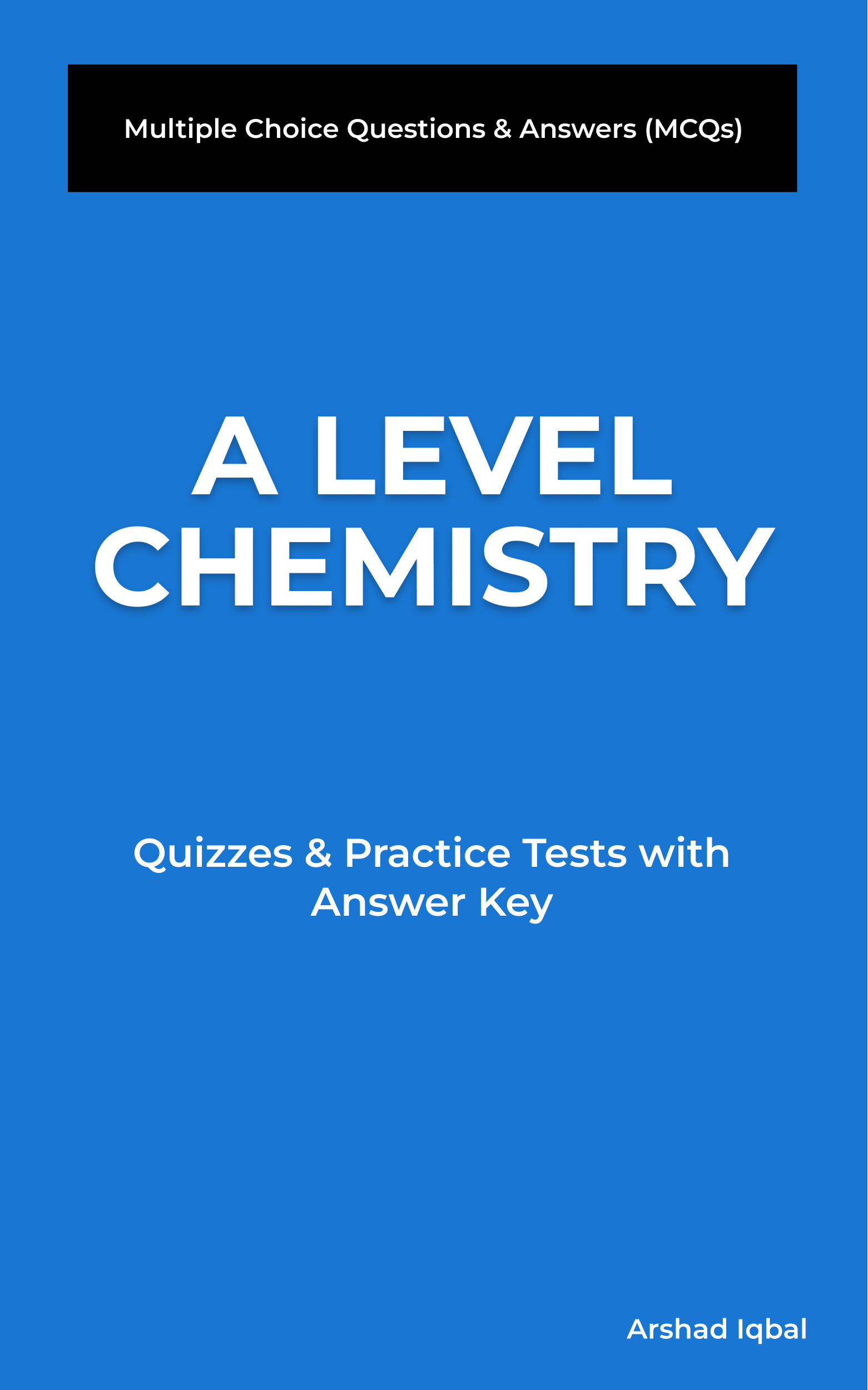IGCSE A Level Chemistry Online Tests
Van der Walls forces in Chemistry MCQ (Multiple Choice Questions) PDF Download
The Van der Walls forces in Chemistry Multiple Choice Questions (MCQ Quiz) with Answers PDF (Van der Walls forces in Chemistry MCQ PDF e-Book) download to practice IGCSE A Level Chemistry Tests. Study Chemical Bonding Multiple Choice Questions and Answers (MCQs), Van der Walls forces in Chemistry quiz answers PDF to learn online training courses. The Van der Walls forces in Chemistry MCQ App Download: Free learning app for van der walls forces in chemistry, ionic bonds and covalent bonds, electron pair repulsion and bond angles test prep for online college for teaching degree.
The MCQ: An increase in the number of electrons increases the; "Van der Walls forces in Chemistry" App Download (Free) with answers: Van der Waal's forces; Enthalpy change of vaporization; Boiling points of noble gases; Melting point of Nobel gases; to learn online training courses. Practice Van der Walls forces in Chemistry Quiz Questions, download Apple eBook (Free Sample) for accredited online colleges.
Van der Walls forces in Chemistry MCQs: Questions and Answers PDF Download
Which statement is incorrect?
- boiling point is independent of the number of contact points
- boiling point depends upon the number of electrons
- boiling point depends upon the number of protons
- boiling point is dependent on number of neutrons
An increase in the number of electrons increases the
- Van der Waal's forces
- enthalpy change of vaporization
- boiling points of noble gases
- melting point of Nobel gases
In order to increase the Van der Waal's forces,
- contact points shall be minimized
- contact points shall be made extinct
- number of electrons shall be increased
- number of protons shall be reduced
In Van der Waal's forces, forces of attraction are formed between
- σ+ of dipole of one atom/molecule and σ− of dipole of next atom/molecule
- π+ of dipole of one atom/molecule and π− of dipole of next atom/molecule
- δ+ of dipole of one atom/molecule and δ− of dipole of next atom/molecule
- none of above
Noble gases can be liquefied at
- low temperatures
- high temperatures
- low pressures
- high bond energies
IGCSE A Level Chemistry Practice Tests
Van der Walls forces in Chemistry Learning App: Free Download (iOS & Android)
The App: Van der Walls forces in Chemistry MCQs App to learn Van der Walls forces in Chemistry Textbook, A level Chemistry MCQ App, and SAT Chemistry MCQ App. The "Van der Walls forces in Chemistry MCQs" App to free download Android & iOS Apps includes complete analytics with interactive assessments. Download App Store & Play Store learning Apps & enjoy 100% functionality with subscriptions!
